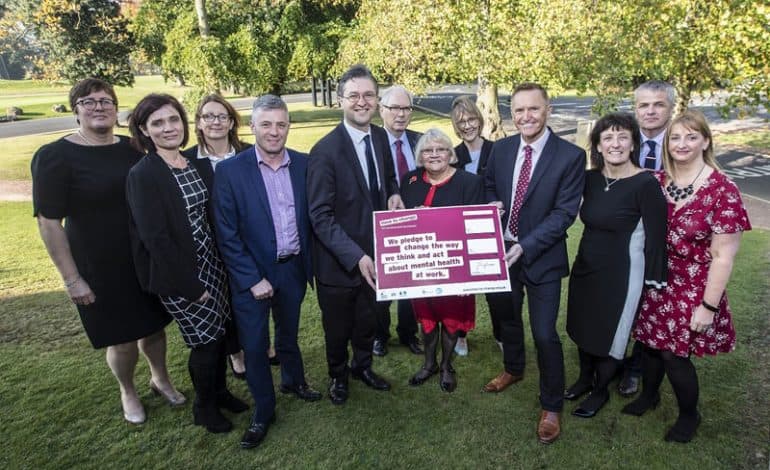Work to support the residents of County Durham with their mental health and wellbeing is the focus of a new report.
‘Time to Talk’ is the annual report of the director of public health for County Durham, which is going before Durham County Council’s Cabinet next week with a recommendation that it be published by the authority.
Directors of public health across the country are required to produce an annual report on the health of their local population by law, with this the second by County Durham director Amanda Healy.
The report gives an insight on the health and wellbeing of local people and provides an update on the priorities from last year’s report including giving every child the best start in life and promoting positive behaviours.
Its major focus is ‘Time to Talk’ with priorities relating to mental health and maintaining a healthy workforce.
The report talks about how in County Durham over 51,000 adults have depression and one in 10 children have a diagnosed mental health disorder.
Around 80,000 adults are estimated to have a common mental health disorder with 12% reporting a long term mental health problem.
Time to Talk recalls how County Durham was one of 14 places across England to be part of a national programme of work on mental health called Prevention at Scale.
Alongside this the Cabinet meeting next Wednesday (October 16) will be reminded of the success of an application for £1m which will see mental health support teams working in schools and colleges in areas of social disadvantage.
The report also recalls the county being named a Time to Change hub, following which the council is working with partners to reduce mental health stigma and discrimination. This followed the authority signing the Time to Change employer pledge.
The meeting will also be told how mental health has been embedded in the Better Health at Work Award, for which County Durham has the highest take-up of 11 North East local authorities.
The award gives a framework for workplace health, asking companies to promote campaigns and deliver activities to promote positive health.
A total of 63 businesses in the county are signed up for the award, with 13 having been recruited in 2018-19, 56 workplaces receiving mental health training and over 320,000 people coming into contact with a health campaign in a County Durham workplace.
As part of the council’s efforts to create a healthier workforce in County Durham, the report outlines its inhouse approach to this with mental health awareness training delivered to almost 1,000 staff, over 100 mental health first aiders and more than 80 Time to Change Champions.
Furthermore, 1,124 council employees attended yoga, pilates, metafit and get creative sessions; 430 received cancer awareness training; 243 participated in Dry January; and over 80 made personal pledges for mental health awareness week.
The council has also worked with Business Durham, the Federation of Small Businesses and students on how to improve mental wellbeing and reduce stigma.
The report also reveals that the council is making progress towards its ambition of only five % of county residents smoking by 2025. Levels of smoking are now at 15%, compared to 22.1% in 2013.
In terms of the council’s priority that every child should have the best start in life, the meeting will also be told that 155 local businesses are now signed up to the Breastfeeding Friendly County Durham scheme.
Another priority is promoting positive behaviours and the report sets out how 150 schools have pledged to provide children and young people with up to 30 minutes of fun physical activities every day in school.
Cllr Lucy Hovvels, the council’s cabinet member for adult and health services, said: “With one in four people experiencing a mental health issue at some point in their lives, it is only right that a lot of our focus is on mental health and creating a healthy workforce.
“In both these areas there has been a real emphasis on supporting people to be able to talk more openly about mental health, through our Time to Change work and the teams which will be going into schools and colleges.
“The work we are doing in all areas is making a difference to real people’s lives and I commend this report to Cabinet.”








